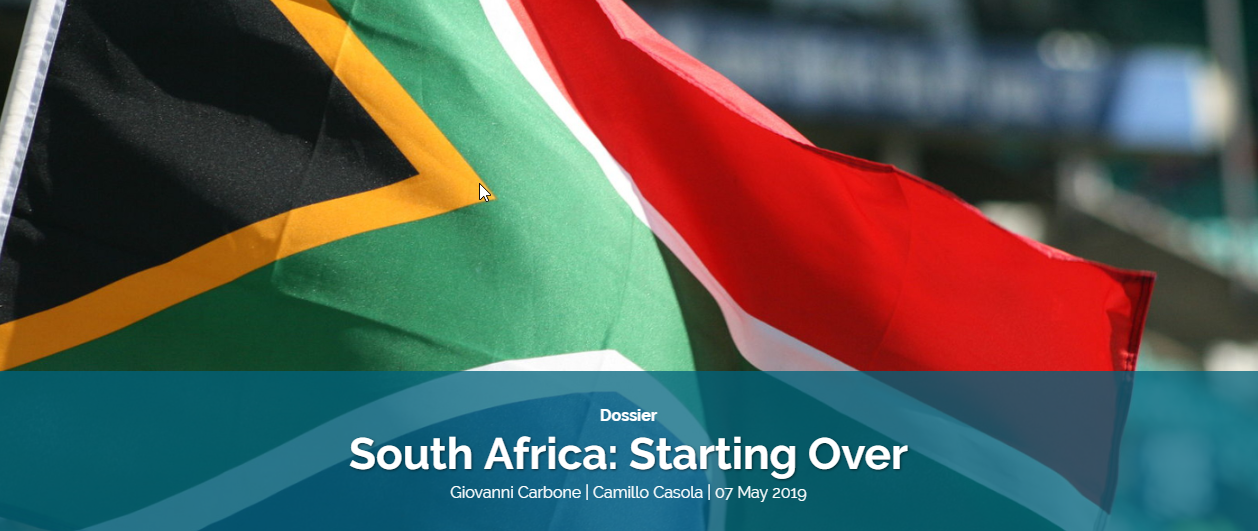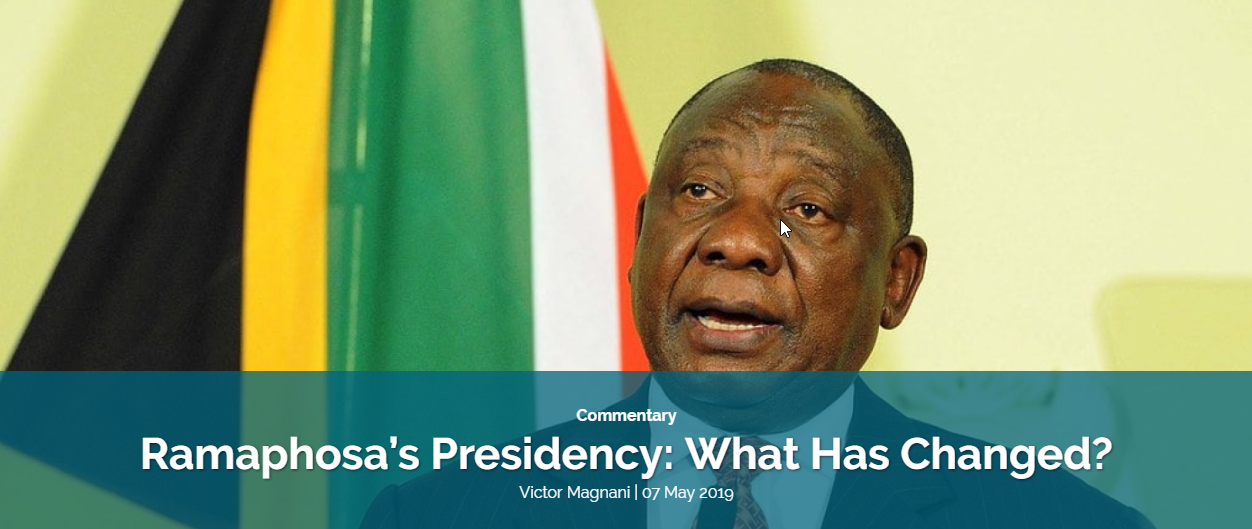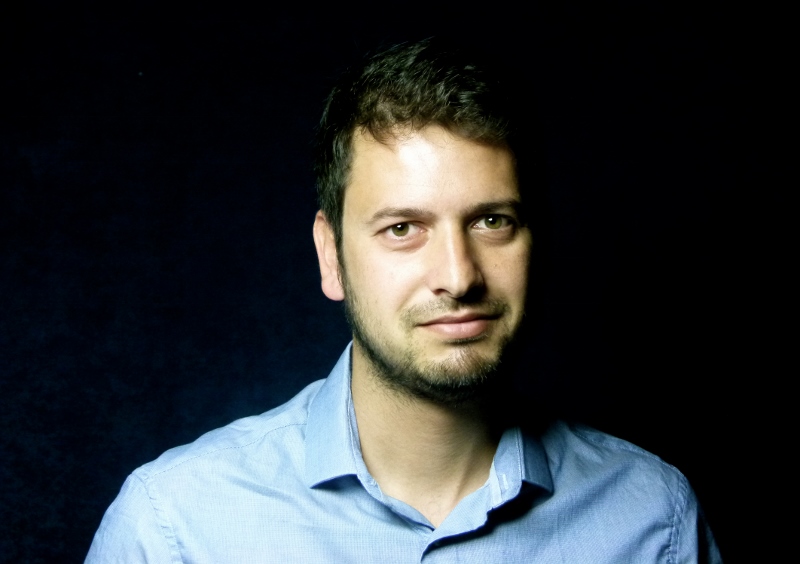Ramaphosa’s Presidency: What Has Changed?

On the eve of the 25th anniversary of democracy in South Africa, the African National Congress (ANC) still holds power in a nearly hegemonic way. Nevertheless, the popularity of the party is decreasing while economic and social inequalities are deeply entrenched in the country.

The legacy of apartheid cannot be dismissed in explaining the state of South African society but the ANC is now facing its own responsibilities, especially since many cases of corruption and mismanagement of public resources have been revealed, particularly under Jacob Zuma's presidency. It is in this difficult context for the ANC that Cyril Ramaphosa was elected party leader in December 2017 and then president of South Africa after Jacob Zuma's resignation in February 2018. This succession has highlighted the deep divisions within the ANC. More than a year after taking office and on the eve of the 2019 general elections, Cyril Ramaphosa faces a dual task: to preserve the unity of his party and to remedy the dissatisfaction of a growing proportion of voters by proposing concrete changes.

Available in:
Regions and themes
Share
Related centers and programs
Discover our other research centers and programsFind out more
Discover all our analysesGabon: Has an — Almost — Exemplary Transition Produced a New Political Model?
In two rounds of voting, on September 27 and October 11, 2025, the citizens of Gabon elected the members of both their local councils and the new national assembly. This marked almost the final stage of political transition, little more than two years after the coup d’état that had overthrown the more than five decades old dynastic regime of the Bongos — Omar, the father, who died in office in 2009, and then his son Ali, who is now in exile.
Claiming "The People": Youth Booms, Ailing Authoritarians and "Populist" Politics in Kenya, Uganda, and Tanzania
This study analyses the emergence of so-called “populist” political tendencies in three East African countries: Kenya, Uganda and Tanzania. It builds its analysis on a wider discussion of the term “populism”, its use and applicability in (eastern) African settings before going on to examine the drivers of three cases of populism: William Ruto’s 2022 election victory in Kenya and the “Hustler Nation”; Bobi Wine’s opposition to Yoweri Museveni in Uganda; and John Magufuli highly personal style of government in Tanzania.
The Contradictory Impacts of Western Sanctions on Economic Relations between Russia and Sub-Saharan Africa
How does Russia maintain economic ties with Africa despite Western sanctions? An analysis of investments, trade, and the circumvention strategies deployed by Moscow.
The Revenue Sources Sustaining Sudan’s Civil War. Lessons for the year 2023
Wars require money and resources, and often, most conflicts involve controlling sources of income and supply lines or denying them to enemies. This has been the case in Sudan’s past conflicts and is again as the civil war—between the Sudan Armed Forces (SAF), commanded by General Abdelfattah al-Burhan, and the paramilitary Rapid Support Forces (RSF), commanded by General Mohammed Hamdan Daglo “Hemedti” —has sunk into a protracted conflict.











